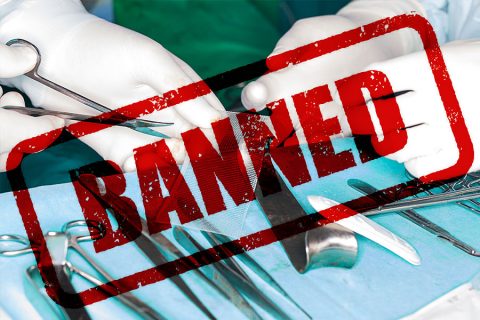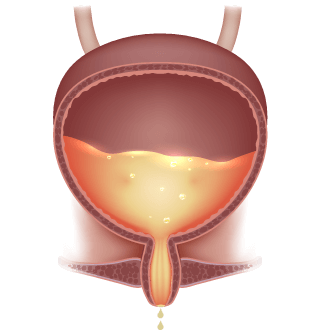
Transvaginal Mesh Worldwide
The use of transvaginal mesh products has resulted in injuries to many women worldwide, and health agencies are now concluding that the benefit of transvaginal mesh does not outweigh its potential risks. In late 2017, Australia and New Zealand became the first countries to ban use of these devices.
Women worldwide are falling victim to transvaginal mesh devices that are blamed for causing several serious complications, including infection, debilitating pain, injury to organs and an inability to have sex.
Many women and their families have filed lawsuits in the U.S., Australia, Canada and parts of Europe. Growing safety concerns, mounting scientific literature and complaints by women who have undergone mesh procedures have prompted some governments to take action.
Australia and New Zealand issued bans on transvaginal mesh devices in 2017, while the U.K. may not be far behind.
Still, transvaginal repair of pelvic organ prolapse using surgical mesh continues to occur in parts of the world, including in the U.S.
The U.S. Food and Drug Administration has not banned transvaginal mesh, and it’s unclear whether the agency ever will — despite its issuing warnings about the use of transvaginal mesh products in pelvic organ prolapse surgeries for almost a decade now.
Transvaginal Mesh Worldwide by the Numbers
- 300,000 Women in the U.S. undergo surgery for incontinence or pelvic organ prolapse using mesh products
- 92,000 Women in England underwent mesh surgery to treat incontinence or pelvic organ prolapse between 2007 and 2015
- 23,000 Women undergo transvaginal mesh surgeries in Canada annually
Canada
Canada has yet to issue any kind of ban on transvaginal mesh products. But in 2014, the Canadian government issued a safety communication regarding reports of complications linked to the device.
“Although many women treated with these devices have had good outcomes, Health Canada continues to receive reports of complications, including some serious and life-altering events, associated with the use of these surgical devices.”
Canada saw its first class action lawsuit against Bard Canada, the maker of Avaulta, Align and Adjust, settle in 2016, for a total of $2.4 million.
Litigation against other transvaginal mesh manufacturers is still pending. These cases are in different stages of the legal process. Boston Scientific, for example, faced eight transvaginal mesh class actions in Canada as of May 2017.
Women claim the pain is so severe some are now on full disability. Additionally, women are suffering from a lack of sexual intimacy that they claim has led to negative consequences within their relationships.
Australia
In November 2017, Australia’s medical device regulator, the Therapeutic Goods Administration (TGA), issued a ban on all transvaginal pelvic mesh devices used to treat prolapse in women.
The TGA determined the mesh products are “too risky,” and that the benefits of such treatment do not outweigh the risks to patients.
The decision was in response to recent international studies on transvaginal mesh devices as well as results of a review into urogynaecological surgical mesh implants.
The TGA’s ban covers pelvic mesh implants that are inserted through the vagina and used to treat pelvic organ prolapse. It also extends to single incision mini-slings used to treat stress incontinence.
Mesh products used to treat other surgical conditions, such as hernia repair, and slings for urinary stress incontinence, such as mid-urethral slings, will still be available.
Australia Transvaginal Mesh Class Action
At least 1,300 Australian women have joined class action lawsuits over claims that transvaginal mesh caused them debilitating pain and made sex impossible. An unknown number of these lawsuits resulted in confidential settlements.
In August 2017, more than 700 women filed a federal class action suit in Australia against Johnson & Johnson. A federal court is expected to decide the suit in 2018.
In August 2022, J&J reached a $300 million settlement in the class action, or about $204 million U.S. dollars. There were about 11,000 claimants and is the largest product-liability class action settlement in Australian history.
New Zealand
As of December 2017, New Zealand became the first country in the world to ban all urinary incontinence and prolapse procedures using surgical mesh implants.

The New Zealand Medicines and Medical Devices Safety Authority (Medsafe) announced that by January 2018, the country’s suppliers would be taking steps to remove pelvic mesh implants from their supply and limit use of the products.
Kath Sansom, founder of the campaign group Sling the Mesh, told The Independent she is “thrilled” with New Zealand’s decision. Sansom added that other governments globally should be banning all pelvic mesh products as well.
However, the Urological Society of Australia and New Zealand said that Medsafe took the ban a step too far by banning all forms of mesh for incontinence, thereby leaving women in New Zealand without effective surgical options.
Four companies, including Boston Scientific, Culpan Medical, Endotherapeutics, and Johnson & Johnson, are expected to comply with Medsafe’s requirements.
One of the products subject to New Zealand’s ban would include the Johnson & Johnson Gynecare TVT device. This device in particular has been linked to significant backlash following a BBC Panorama documentary that called into question its clinical trial processes as well as the manufacturer’s failure to update health care providers on the device’s actual risks.
United Kingdom (England, Scotland, Wales and Northern Ireland)
In December 2017, the National Institute for Health and Care Excellence (NICE) issued a guidance recommending that transvaginal mesh repair of pelvic organ prolapse only be used for research.
NICE’s report concluded that current evidence on the safety of such procedures shows there are “serious but well-recognized safety concerns” associated with the use of transvaginal mesh products for prolapse repair.
NICE further found, based on data from randomized controlled trials, that there was no evidence of added benefit of using mesh compared to traditional non-mesh procedures.
Additionally, evidence of long-term effectiveness was determined to be inadequate in quality and quantity. And finally, when complications occurred, they were both serious and life-changing.
NICE therefore concluded that more research was necessary, and that routine surgeries using transvaginal mesh products should be banned.
The National Health Service in England has not yet responded. It is not required to accept NICE’s recommendation.
In 2014, former Scottish Health Secretary Alex Neil requested that the National Health Service suspend the use of mesh implants in Scotland, pending safety investigations. However, as of December 2016, it is estimated that more than 400 women have received mesh and tape implants in Scotland since Neil’s request.
Will the U.S. be Next?
Now that other countries are issuing bans on transvaginal mesh, many are waiting to see how these bans will impact the U.S., where more women undergo surgery to treat incontinence and pelvic organ prolapse using mesh products than anywhere else in the world.
As of yet, the FDA has not banned the device. Nor has the agency given any comment regarding actions being taken around the world.
The FDA previously rejected a ban on transvaginal mesh products. The consumer advocacy group Public Citizen filed a petition in 2011 that called for a total ban. The FDA responded in May 2014, stating that while the agency does share many of the same concerns as Public Citizen, it did not see a total ban as an appropriate solution.
The FDA further wrote that there was not enough evidence to indicate that all transvaginal mesh products cause serious complications or death. However, the FDA did leave the discussion of a recall open for a later date, if necessary.
Meanwhile, more than 100,000 transvaginal mesh lawsuits have been filed in the U.S., making it one of the largest mass tort actions in history.
Calling this number connects you with a Drugwatch representative. We will direct you to one of our trusted legal partners for a free case review.
Drugwatch's trusted legal partners support the organization's mission to keep people safe from dangerous drugs and medical devices. For more information, visit our partners page.


